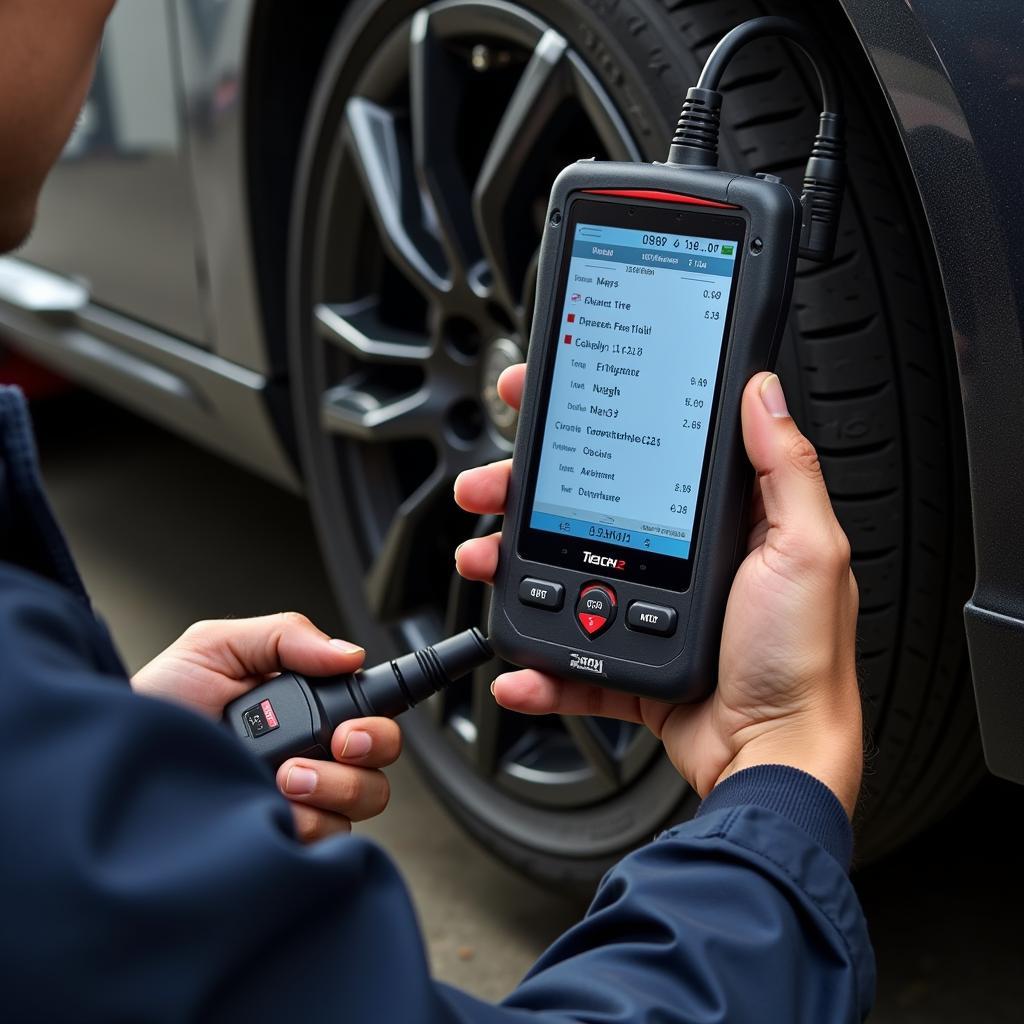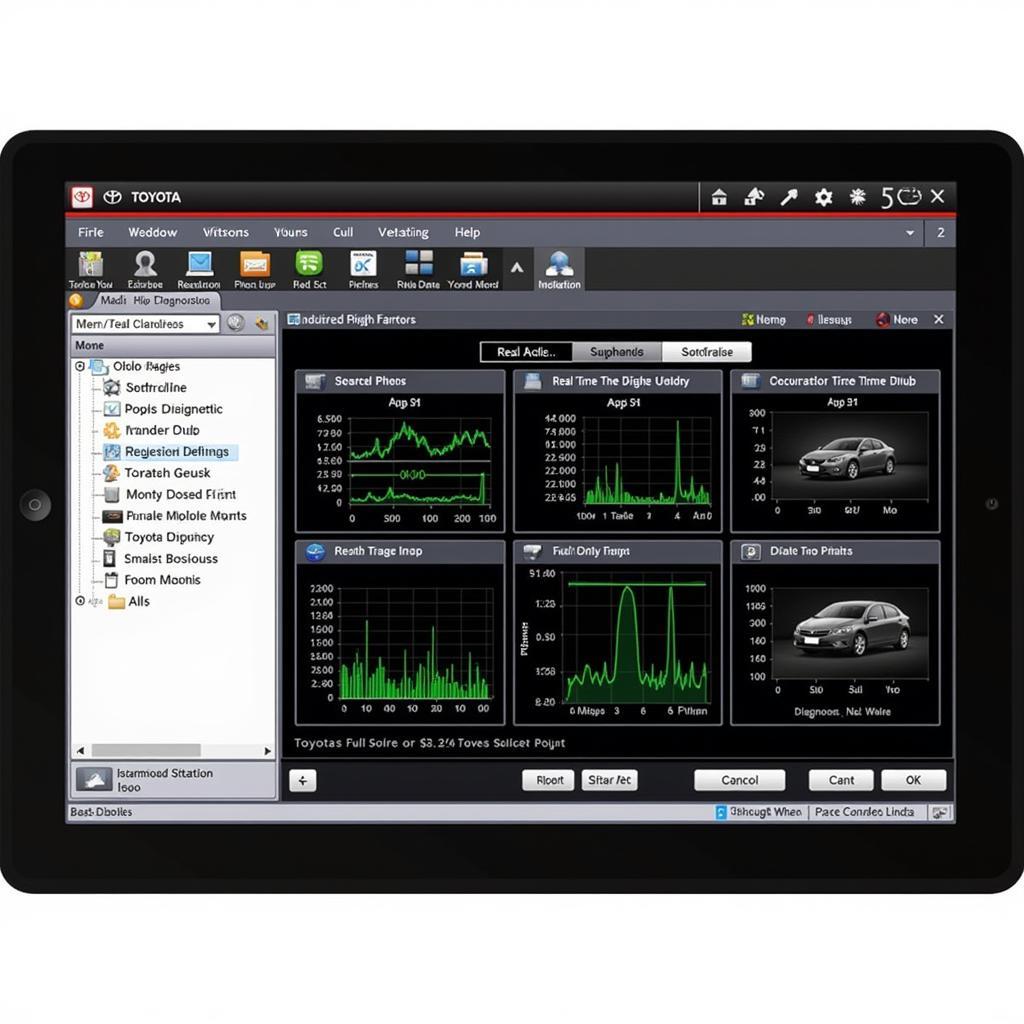Modern vehicles are complex networks of interconnected electronic control units (ECUs). This intricate web of software and hardware makes them susceptible to cyber threats. Ensuring the integrity of these systems is paramount, and this is where Integrity Scanning Tools come into play. These tools are essential for identifying vulnerabilities and protecting vehicles from malicious attacks.
Maintaining the security and reliability of a vehicle’s electronic systems is more critical than ever. As vehicles become increasingly sophisticated, so too do the methods used by malicious actors. Integrity scanning tools offer a proactive approach to safeguarding these systems by detecting unauthorized modifications, malware, and other security breaches.
Just like industry standard tools for vulnerability scanning, integrity scanning tools can help identify potential weaknesses in your car’s systems. These tools are becoming increasingly important for both individual car owners and professional repair shops. They allow technicians to quickly and efficiently verify the authenticity of software and hardware components, ensuring that the vehicle is functioning as intended.
What are Integrity Scanning Tools?
Integrity scanning tools are specialized software applications designed to verify the authenticity and integrity of a vehicle’s electronic systems. They analyze the software code, firmware, and configurations of various ECUs, comparing them against known good values. Any discrepancies or unauthorized modifications are flagged as potential security risks.
How Do Integrity Scanning Tools Work?
These tools often work by creating a baseline snapshot of the vehicle’s software and hardware configurations. This baseline serves as a reference point for future scans. Regular scans then compare the current state of the vehicle’s systems against the baseline, highlighting any deviations that may indicate a security breach or unauthorized modification.
Why are Integrity Scanning Tools Important?
Integrity scanning tools are essential for several reasons:
- Early Detection of Security Breaches: They allow for the early detection of unauthorized modifications or malware, preventing potential damage or compromise of the vehicle’s systems.
- Ensuring Vehicle Reliability: By verifying the integrity of the vehicle’s software and hardware, these tools help maintain the vehicle’s reliability and prevent malfunctions.
- Meeting Regulatory Requirements: In some regions, integrity scanning may be required to comply with safety and security regulations.
- Protecting Against Cyberattacks: As vehicles become more connected, they become increasingly vulnerable to cyberattacks. Integrity scanning tools provide a critical layer of defense against these threats.
Similar to what do scan tools connect to, integrity scanning tools often connect to the vehicle’s OBD-II port, allowing access to the various ECUs. This connection enables the tools to perform comprehensive scans and identify potential vulnerabilities.
Who Should Use Integrity Scanning Tools?
- Vehicle Manufacturers: Manufacturers can use these tools during development and testing to ensure the security of their vehicles’ electronic systems.
- Repair Shops: Repair shops can use integrity scanning tools to diagnose and troubleshoot complex electronic issues.
- Fleet Managers: Fleet managers can use these tools to monitor the security and integrity of their vehicles.
- Individual Car Owners: Concerned car owners can use these tools to ensure their vehicles are protected from cyber threats.
Choosing the Right Integrity Scanning Tool
Selecting the right integrity scanning tool depends on various factors, including the specific needs of the user and the type of vehicle being scanned. Some key considerations include:
- Compatibility: Ensure the tool is compatible with the vehicle’s make, model, and year.
- Functionality: Consider the specific features and capabilities of the tool, such as the ability to scan different ECUs and detect various types of threats.
- Ease of Use: Choose a tool that is user-friendly and easy to operate, even for those without extensive technical expertise.
Just like free online vulnerability scanning tools, some integrity scanning tools may be available for free, but professional-grade tools typically offer more advanced features and capabilities.
“Regular integrity scans are crucial for maintaining the safety and security of modern vehicles,” says John Smith, Senior Automotive Cybersecurity Engineer at CyberSafe Auto Solutions. “These scans can help identify potential vulnerabilities before they can be exploited by malicious actors.”
The Future of Integrity Scanning Tools
As vehicles become increasingly connected and autonomous, the importance of integrity scanning tools will only continue to grow. These tools will likely become even more sophisticated, incorporating advanced features such as artificial intelligence and machine learning to detect and mitigate emerging threats. In much the same way as auto integrity scan tool, future tools will likely offer automated scanning and real-time monitoring capabilities. Furthermore, the integration of integrity scanning into the vehicle’s onboard systems is a potential future development, allowing for continuous monitoring and proactive threat detection.
“The automotive industry is rapidly evolving, and security needs to keep pace,” adds Sarah Jones, Lead Software Engineer at SecureDrive Systems. “Integrity scanning tools will play a vital role in ensuring the safety and security of future vehicles.”
Thinking about the implications of 3d scane tools in a similar way, advancements in technology may lead to even more comprehensive and effective integrity scanning solutions for vehicles in the future.
In conclusion, integrity scanning tools are essential for protecting modern vehicles from the growing threat of cyberattacks. These tools provide a proactive approach to security, allowing for early detection of vulnerabilities and ensuring the reliability of the vehicle’s electronic systems. As vehicles become increasingly complex and connected, the importance of these tools will only continue to grow.
We encourage you to connect with ScanToolUS for support and guidance on selecting and implementing integrity scanning tools.
Contact us at +1 (641) 206-8880 or visit our office at 1615 S Laramie Ave, Cicero, IL 60804, USA.



